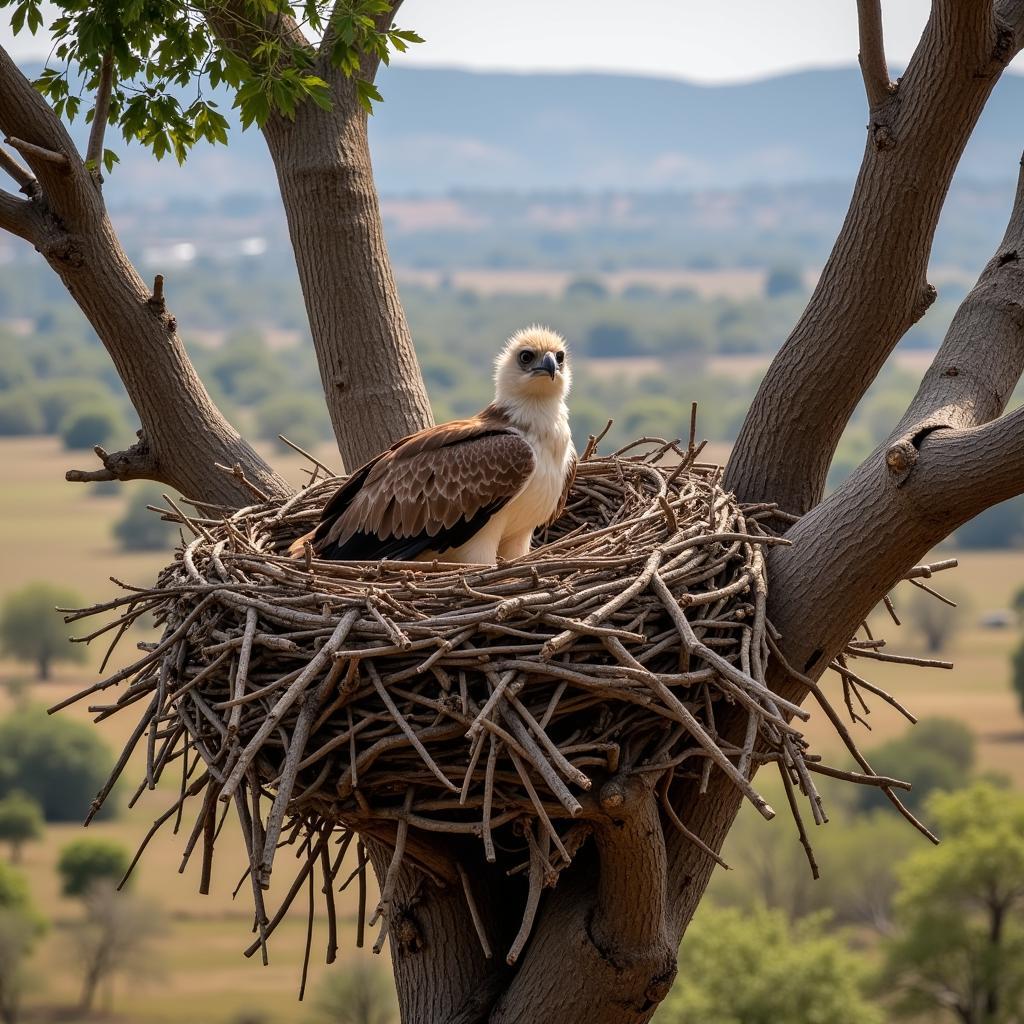The Majestic African Fish Eagle: King of the Skies in Kruger National Park
The African fish eagle, with its striking plumage and piercing call, is an iconic sight (and sound!) in Kruger National Park. This majestic raptor, often seen perched atop a tree overlooking a waterway, is a true symbol of the African wilderness. Its presence, always a thrill for visitors, is just one of the many reasons Kruger National Park is considered a top safari destination worldwide.
Identifying the African Fish Eagle
The African fish eagle (Haliaeetus vocifer) is a large species of eagle, with adults reaching up to 76 cm in length and boasting a wingspan of up to 2.4 meters! They are easily recognizable by their distinctive coloration: chestnut brown back and wings contrasting sharply with a pure white head and chest. Their dark brown tails also have a striking white band, particularly noticeable in flight. Perhaps their most captivating feature is their bright yellow eyes, which seem to pierce through the landscape as they scan for prey.
While both sexes display similar markings, females are noticeably larger than their male counterparts. Juvenile birds have a mottled brown and white appearance, gradually developing their adult plumage over their first four years.
The Call of the Wild
No visit to Kruger National Park is complete without hearing the soul-stirring call of the African fish eagle. Often described as a “weee-ah, weee-ah” or a laughing sound, this call is deeply evocative of the African wilderness. The sound, which carries for long distances, is used for various purposes, including attracting a mate, defending territory, and announcing a successful catch. Interestingly, it’s often the female that possesses the louder and more powerful call.
A Fish Eagle’s Diet: More Than Just Fish
While their name suggests a diet solely of fish, African fish eagles are opportunistic predators with a surprisingly varied menu. Fish, of course, make up a significant portion of their diet, and they are highly skilled at snatching prey from the water’s surface with their powerful talons. Tilapia, catfish, and lungfish are common targets.
However, their diet extends beyond the aquatic. They are known to hunt birds, reptiles, and even small mammals. They are also adept at kleptoparasitism, a behavior where they steal food from other birds, particularly other raptors like the goliath heron.
Nesting and Breeding Habits
African fish eagles are monogamous birds, forming strong pair bonds that often last a lifetime. They establish territories around bodies of water within the park, fiercely defending these areas from rivals. Breeding season varies depending on location, but in Kruger National Park, it typically occurs during the dry winter months (June-August).
Their nests are massive structures built high up in tall trees, often overlooking water. Both parents participate in nest construction, using sticks and branches and lining the interior with softer materials. Females typically lay one to three eggs, and both parents share incubation duties for about 42-45 days.
 African fish eagle chick in its nest in Kruger National Park
African fish eagle chick in its nest in Kruger National Park
Once hatched, the chicks remain in the nest for around 70-75 days, relying on their parents for food and protection. Even after fledging, young eagles stay with their parents for several months, learning essential survival skills like hunting and navigating their territory.
Where to Spot African Fish Eagles in Kruger
Given their preference for waterways, your best chance of spotting an African fish eagle in Kruger National Park is around the many rivers and dams that crisscross the park. Here are a few prime locations:
- The banks of the Sabie River: The Sabie River is a renowned wildlife hotspot, and the presence of abundant fish makes it a favored hunting ground for fish eagles.
- Lake Panic Hide: This hide, located near the southwestern entrance of the park, offers excellent views of the lake and the surrounding trees, where fish eagles are frequently sighted.
- Sunset Dam: As its name suggests, Sunset Dam is a beautiful spot to enjoy the evening light, and it’s also a popular hangout for fish eagles seeking a late-night meal.
Conservation Status: A Symbol of Hope
Fortunately, the African fish eagle is classified as a species of “Least Concern” by the IUCN. Their populations remain relatively stable throughout their range, thanks in part to their adaptability and the protection offered by parks like Kruger. However, threats such as habitat loss, pollution, and human disturbance still exist and require ongoing conservation efforts to ensure the continued success of this magnificent bird.
The African fish eagle, with its breathtaking beauty and captivating calls, remains an iconic symbol of the African wild. Seeing one in its natural habitat is a truly unforgettable experience, and a testament to the incredible biodiversity that Kruger National Park protects.

